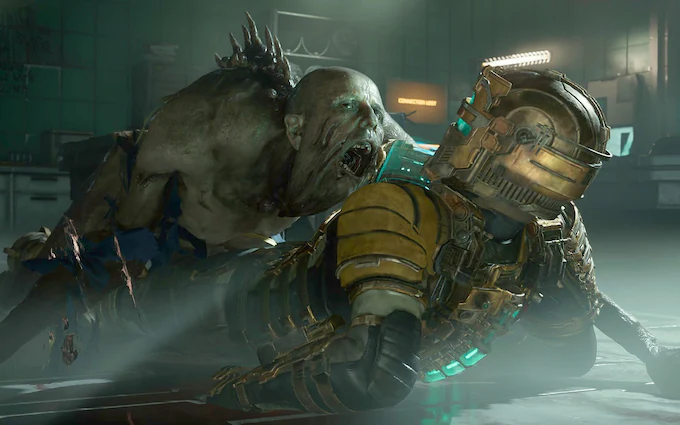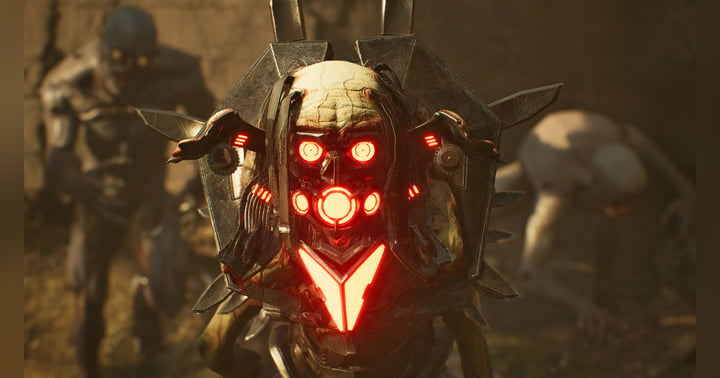Electronic Arts Missed Opportunity with Dead Space

Revisiting the Dead Space Franchise
I loved the Dead Space remake. So Electronic Arts' decision to shelve the Dead Space franchise once again after a successful remake has left many fans (myself included) disappointed. The original Dead Space trilogy was critically acclaimed for its innovative gameplay, terrifying atmosphere, and compelling story. The remake brought these classic titles to a new generation of gamers with stunning graphics and improved mechanics. It was a gem that followed and surpassed the remake standards after Capcom released the Resident Evil 2 remake in 2019.
The Success of the Dead Space Remake
The Dead Space remake was a commercial and critical success. It topped sales charts and received rave reviews from both critics and players. The game's success was a testament to the Dead Space franchise's enduring appeal and the remake's high quality. This also proved that the space survival horror genre was not dead but just in need of a revival and this was it. After the disastrous launch of The Calisto Protocol, the Dead Space remake was a breath of fresh air and nostalgia all wrapped in a nice little horror-filled spaceship.
So what went wrong? Well according to developer EA (Electronic Arts), the sales (despite selling over 2 million copies) were not enough to justify a second remake and therefore labeled the first as a commercial flop. In today's economy, I would say selling 2 million copies of a game is no small feat. However, we also know EA tends to prioritize microtransactions over an enjoyable gamer experience.
Missed Opportunities: Exploring the Potential
EA's decision to put the Dead Space franchise back on ice represents a missed opportunity. The remake's success proved that there is still a strong demand for Dead Space, and the franchise has the potential to grow and evolve.
-
New Installments in the Series
A new Dead Space game could have continued the story from the remake, exploring new characters and worlds while expanding on the franchise's unique blend of horror and science fiction. A chance to completely remake the third installment would have been possible as well.
-
Spin-off Games
Spin-off games could have delved into different aspects of the Dead Space universe, such as the origins of the Necromorphs or the backstory of Isaac Clarke. With lore spanning hundreds of years, the Dead Space universe is a gold mine of untapped potential that gamers may never see.
-
Merchandise and Licensing
The Dead Space franchise is rich with iconic imagery and characters that lend themselves well to merchandise, collectibles, and licensing deals. EA could have capitalized on the popularity of the remake to generate additional revenue streams.
Challenges in Monetization: The Impact of Microtransactions
One possible reason for EA's decision to abandon the Dead Space franchise is the challenges it faces in monetization. The original Dead Space trilogy was released before the era of microtransactions, but modern gamers have come to expect in-game purchases as a means of ongoing support for developers.
-
Lack of Viability for Microtransactions
Dead Space is a linear, story-driven game that does not lend itself well to microtransactions. Implementing microtransactions could have compromised the game's integrity and alienated fans.
Subscription Services and Long-Term Monetization
Another factor that may have influenced EA's decision is the rise of subscription services such as Xbox Game Pass. These services offer access to a vast library of games for a monthly fee.
-
Difficulty in Long-Term Monetization
Games that are available on subscription services do not generate ongoing revenue for developers. EA may have prioritized games with more potential for long-term monetization. This is the more likely reason as they also let their rights to the Star Wars franchise expire after ten years. During that time they tried their best to turn Star Wars into a microtransaction machine which gamers pushed back against.
Prioritizing Fully Released Games vs. Long-Term Profitability
EA's decision to shelve the Dead Space franchise also raises concerns about the industry's prioritization of long-term profitability over-delivering fully realized games.
-
Focus on Live Service Games
EA has invested heavily in live service games, which generate ongoing revenue through microtransactions and subscription services. This focus may have led the company to neglect single-player, story-driven games like Dead Space.
-
Negative Impact on the Gaming Experience
The prioritization of long-term profitability can compromise the quality and integrity of games. Players may feel like they are being nickel-and-dimed or that games are being designed to maximize revenue rather than provide a satisfying experience.
Reflections on EA's Decision
EA's decision to shelve the Dead Space franchise is a disappointing development. The remake's success proved that there is still a strong demand for the title, but EA has chosen to prioritize other ventures. This decision is a symptom of the industry's increasing focus on long-term profitability over fully realized games. As a result, gamers may miss out on great experiences like Dead Space, and the overall quality of gaming may suffer.
Don't miss our latest podcast episode where we discuss EA's decision-making process and its impact on the gaming industry.











